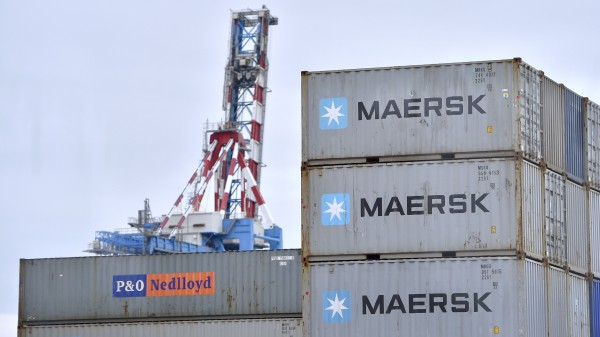Moving millions of gigantic metal boxes around the world is hard work—but circumnavigating the associated paperwork can be even harder. So the world’s largest shipping company has been trialing how it can make use of the digital technology behind the world’s most notorious cryptocurrency, Bitcoin, to make it a little easier.
Bitcoin is built on what’s called the blockchain: a digital ledger where each line is recorded based on the previous one using cryptographic techniques, making it almost impossible to modify at a later date. The ledger isn’t stored centrally, and multiple parties can agree by consensus that the details contained within it are accurate—which means that it’s in everyone’s interest to keep it so. That makes it perfect for recording financial transactions, but also doing plenty else, too.
The shipping company Maersk has now announced that it has been working with IBM to use the blockchain to keep track of shipments as they’re hauled across the seas. This isn’t the company keeping track of the metal boxes themselves, but rather their contents. The company claims that a single container being hauled from East Africa to Europe might require paperwork to be dealt with by as many as 30 different people, spread across 200 or more interactions.
So with IBM it’s built a tool based on blockchain that allows every participant in a supply chain to see the progress of a shipment, including where the container is and the status of its documents. The hope: shippers reduce the weight of paperwork that needs to be done, while customs officials and clients can see where goods are at all times. So far, shipments of flowers from Kenya, mandarin oranges from California, and pineapples from Colombia have all been tracked using the tool as they flowed into the port of Rotterdam in the Netherlands.
Maersk isn’t alone in using the blockchain to keep track of stuff. As the New York Times points out in a long piece describing IBM’s foray into blockchain, Big Blue is working with 400 different organizations to apply the technology to different situations. That includes Wal-Mart, which announced last year that it was using blockchain to record and log the origins of produce in order to improve health and safety standards.
IBM is clearly looking to assert its control as a blockchain force to be reckoned with, but others will snap at its heels. Microsoft is already working on the technology, and its open nature means that it’s already being used by smaller upstarts to do everything from build cryptocurrencies for the world of corporate finance to make a more private Internet. One thing is clear: there’s certainly more to blockchain than Bitcoin.







